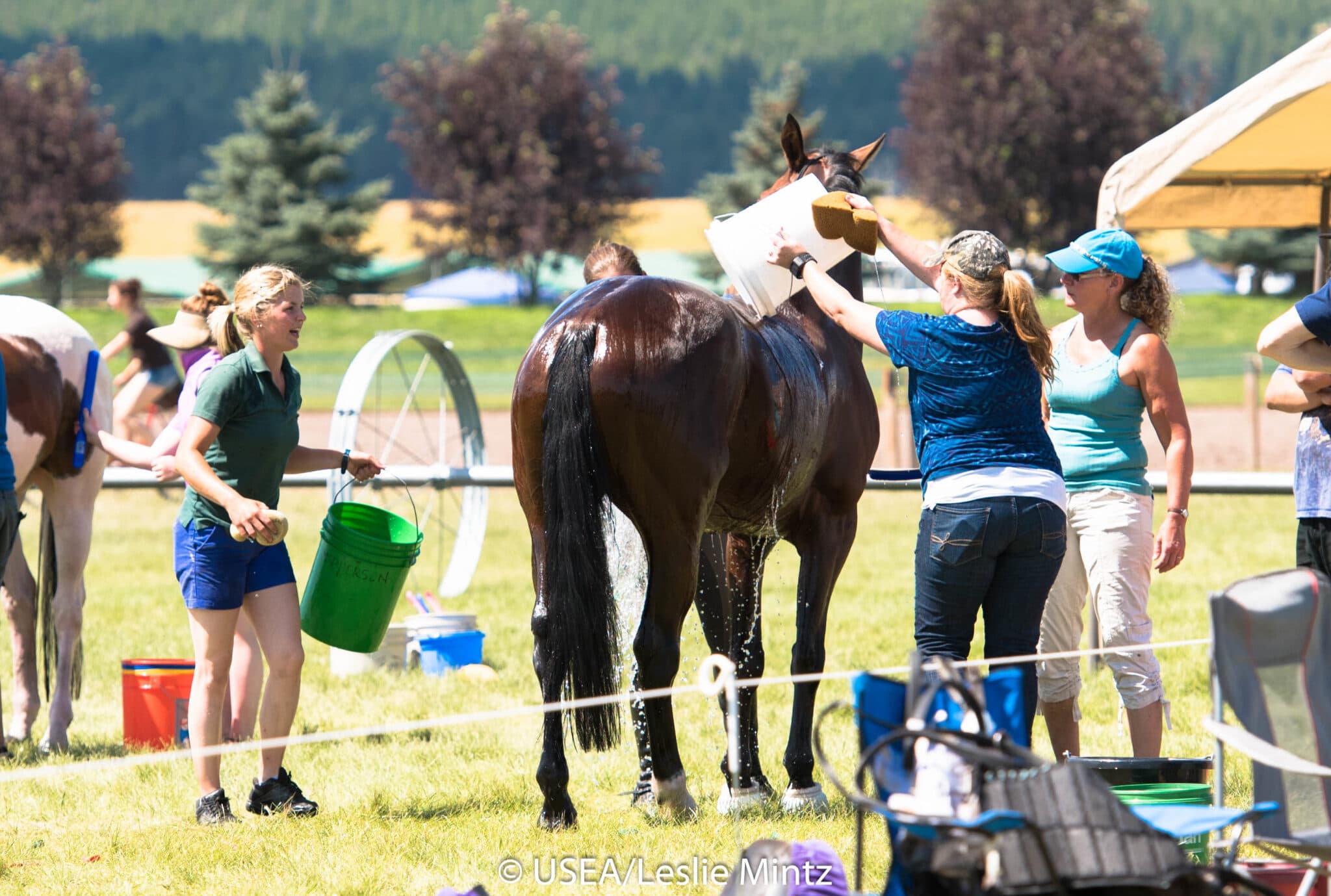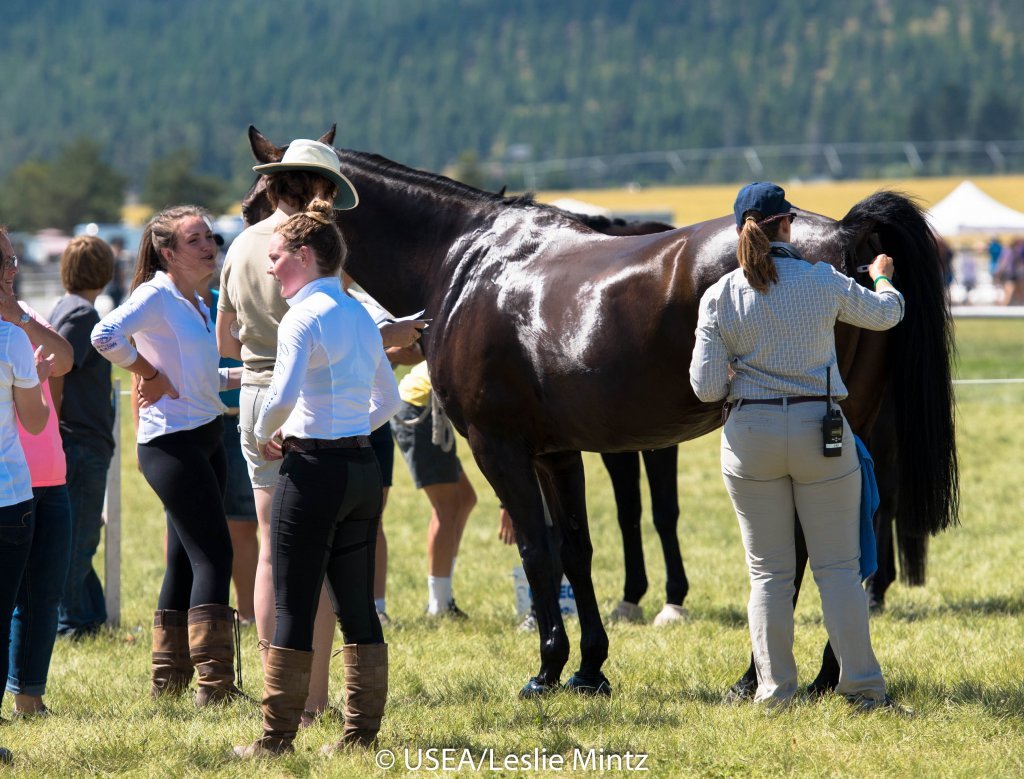Tips and Tricks of the Trade: The Vet Box

Tips and Tricks of the Trade is an article series being provided through a partnership between Athletux and the USEA. Shelby Bornheimer, a groom for Phillip Dutton, gives us the inside scoop on what happens in the vet box after a big three-day competition.
After cross-country care is intense, extremely hands-on and begins the second that horse crosses through the finish flags, especially for an upper level three-day competition. Working for Phillip Dutton under master groom Emma Ford has given me countless tools and tricks to care for these equine athletes and help them feel their best going into the next day of competition.
The right supplies are key. You’ll need multiple water buckets filled with ice and cold water, sponges, sweat scrapers, supplies for studs, and a cooler or scrim depending on the weather. You will want to claim an area in the vet box and get set up ahead of time, making sure to leave enough room for the horse, grooms and veterinarians. Also try to pick somewhere shady if it’s a hot day – the comfort of our star athletes is the number one priority!
When you see your rider coming to the finish, get ready to move. Start by untacking the horse in the most efficient way possible while walking to the box. Putting the tack on the ground safely out of the way, team members will immediately start sponging the horse and scraping the water off focusing on areas where their main arteries are – the neck, around the heart, between their legs. Keep in mind that veterinaries will be involved and taking the horses temperatures as you go. It’s a good idea to keep a mental note of the temps so that you can keep track of the cooling down process too. Remember also to always offer your horse water, letting them drink as much as they need. Horses will come into the vet box jacked with adrenaline, so leave their galloping boots on until they are cool and calm enough to remove the studs safely. This prevents any possible injury to themselves from the studs. You will also want to check over their bodies for anything abnormal, like scrapes or injuries.

Vets taking a horse's temperature after cross-country. USEA/Leslie Mintz Photo.
Vets will come around two or three times to recheck the horse’s temperature and heart rate. Do not be alarmed if the horse’s temperature has gone up the second time it is checked – this is very common. Once their vital signs have dropped significantly, the vet team will release you to take the horse back to the barn.
When you’re back at the barn, let the horse go in the stall for a few minutes of downtime before you keep on with the post cross-country care. Icing their legs is a key component in this process to help prevent soft tissue and joint damage. I like to use whirlpool boots or tall muck buckets so that I can also ice their feet. For the upper level horses, we like to ice a horse for twenty minutes two times that evening. It’s also important to walk the horse frequently after cross-country and throughout the evening to keep them loose and comfortable. After icing, wrap their legs with some sort of liniment, I prefer Sore No More, or you can poultice. Either way will help with inflammation. Another thing you can do to help their recovery is to pack their feet. There are many different ways to do this, I like to use an Epsom salt poultice which I wrap with a diaper and then vet wrap on top. This will pull out heat and soreness from the hard ride earlier.
You will also need to care for any rubs or injuries that the horse may have sustained on the course. Make sure they are clean and kept covered with ointment. I like to use SSD or skin mend in these types of situations.
After exerting that much energy a horse can lose a lot of fluids, so sometimes you must administer more. Event veterinarians would give the fluids and monitor your horse. During this process, the horse’s head should be kept elevated to prevent a hematoma. In other cases, simply adding water to their feed can be enough.
At the end of the night make sure that your horse has a comfortable bed to lay in and lots of water. Check their legs and make sure they are wrapped, feet packed, and have gone for one last hand walk before settling in for the night.















